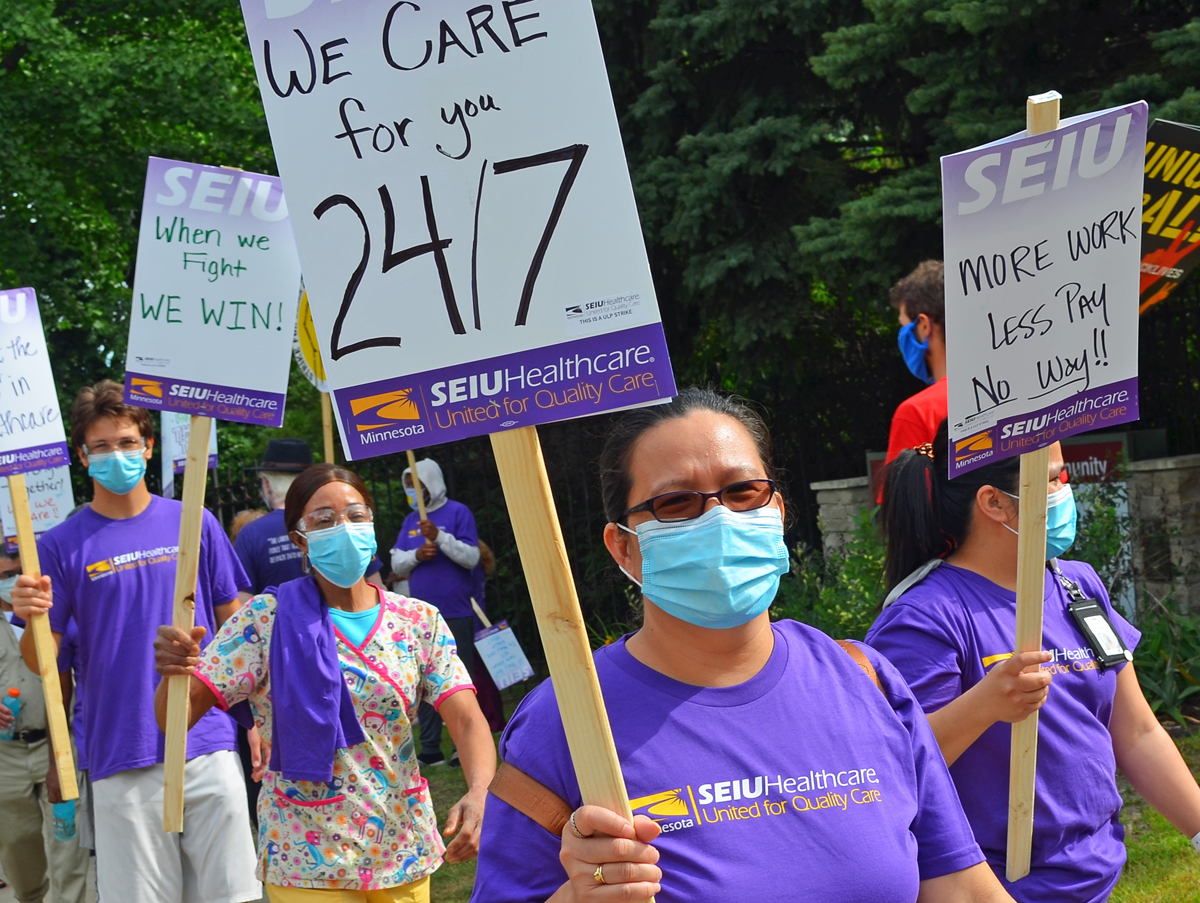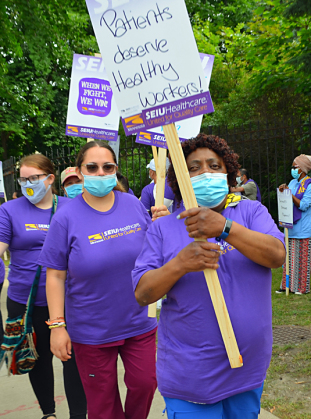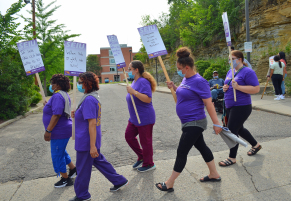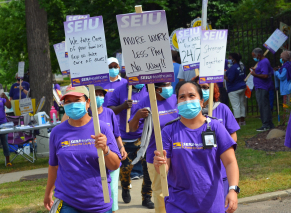
Cerenity Humboldt nursing assistants Helen Boayle (L), Jennifer Balanay and Janice Dunbar (R), members of SEIU Healthcare Minnesota, walk the picket line July 20.

Share
On a day when working people in over 25 cities across the U.S. joined a union-backed Strike for Black Lives, nursing home workers at Cerenity Humboldt Care Center in St. Paul staged a 24-hour strike, demanding a contract that reflects their essential work.
Members of SEIU Healthcare Minnesota who work at Cerenity Humboldt set up a picket line July 20 after a majority voted to authorize a strike over unfair labor practices.
The health care workers say contract talks with the employer have broken down despite seven meetings between representatives for the two sides over the last six months.
As bargaining has dragged on, the novel coronavirus has spread widely in Minnesota’s long-term-care and assisted-living facilities. Their residents account for more than three-quarters of the state’s COVID-19 deaths, and some 7,500 known cases have been traced back to congregate living facilities.
Despite the risks SEIU members are taking, Cerenity Humboldt, workers say, has refused their demand for pay increases that reflect their critical service during the pandemic. Worse, management continues to make proposals that would move some union members backwards.
Rhonda Little, who has been a cook at Cerenity for over 5 years and member of the union’s negotiating team, said management “just doesn’t seem to want to negotiate” when the two sides meet.
“During this pandemic we’ve kept COVID away from our patients, and it is time our facility steps up to respect our work,” Little said. “We only can put up with so much. We have lost so many employees because of turnover, but they don’t want to give us a fair raise – and they are talking about taking away paid sick time.”
Little said she worries high turnover will impact the quality of services SEIU members provide at Cerenity Humbold. In the last year, 17 people have left her department alone.
The SEIU bargaining unit includes 85 cooks, housekeepers, janitors, nursing assistants, laundry aides, dietary aides and restorative aides who work inside the facility.
“Our pay is some of the lowest around for our work,” she said. “St. Paul minimum wage is going up towards $15, and people starting here don’t even make $15. Enough is enough. We want them to realize that we are tired of not being taken seriously. By going on strike, we are standing together and standing up for ourselves.”
Cerenity Humboldt workers went on strike the same day as other nursing home workers across the country, as well as fast-food, hospital, airport and other essential workers participating in the “Strike for Black Lives.” Strikers highlighted the risks essential workers, who are disproportionately people of color, face during the pandemic, often without sick pay or good health care, without proper protective equipment and for poverty wages.
In Minnesota, striking workers joined together with MSP Airport workers, currently fighting for a $15 minimum wage at MSP, for a car caravan highlighting their unity, despite working in different industries, in the fight for economic and racial justice.




